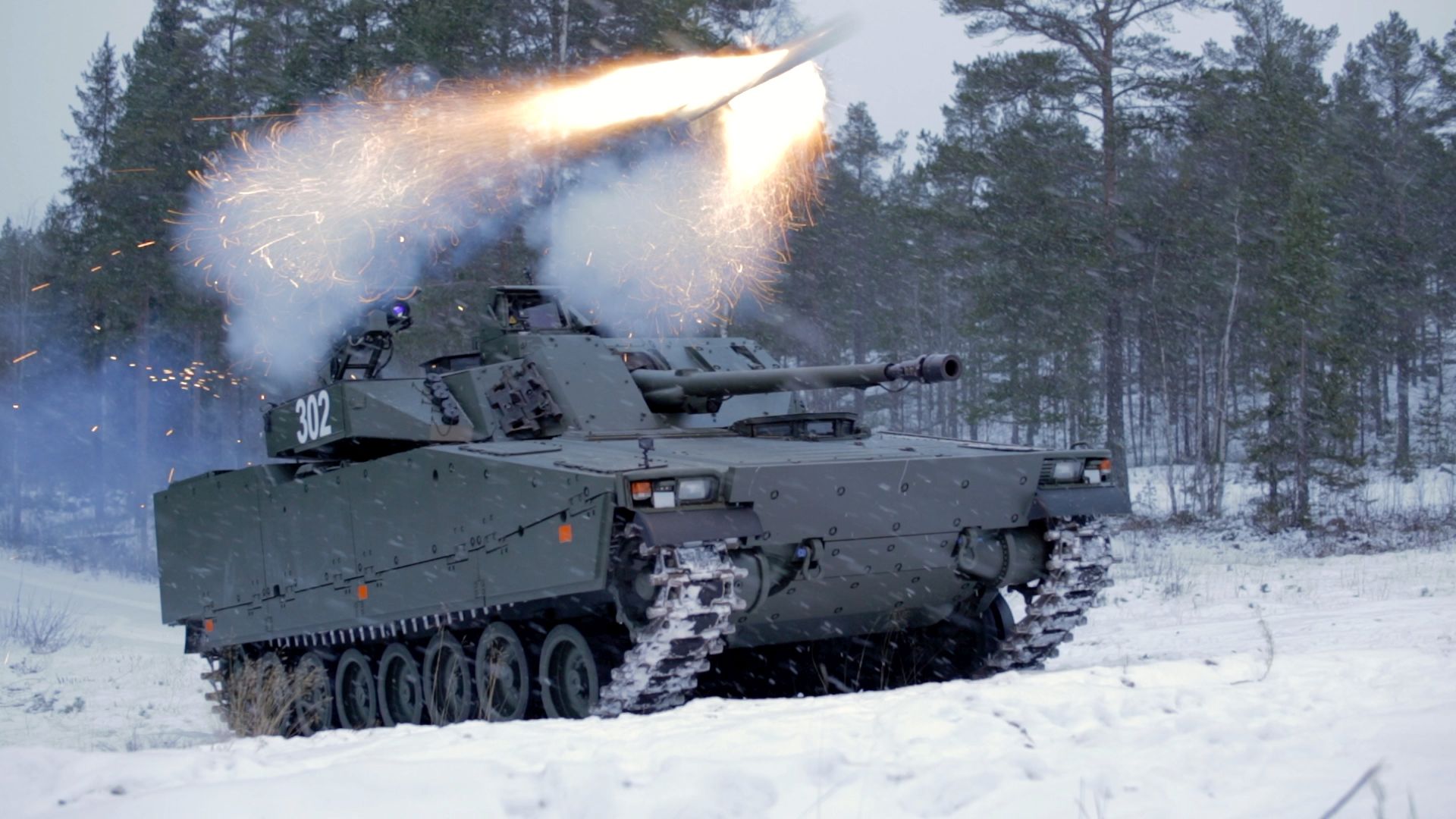BAE Systems has successfully fired an integrated, long-range anti-tank guided missile from the CV90 Infantry Fighting Vehicle in a recent series of tests. This advancement further diversifies the CV90’s operational capabilities on the battlefield by enabling indirect fire at long distances or at air targets, boosting the vehicle’s lethality while increasing crew safety.
The testing, which took place in difficult arctic conditions, used a Rafael Advanced Defense Systems’ SPIKE-LR (long range) missile mounted on a BAE Systems Hägglunds’ CV90 to defeat a target at more than 2,000 metres. The exercise marks the first time an integrated version of the anti-tank guided missile has been launched from the CV90. It also demonstrates the platform’s versatility to perform a wide range of missions, and shows the CV90 can easily adapt to new technologies for meeting current and future customer needs.
“This integrated anti-tank capability confirms that the CV90 is a true benchmark when it comes to expanding a family of multi-mission armored fighting vehicles,” said Dan Lindell, CV90 platform director at BAE Systems Hägglunds. “This new capability can alter the battlefield dynamic and is yet another example of how the CV90’s already superior mobility and survivability allows the warfighter to pack an even heavier punch in any terrain or weather conditions, and at any time on any battlefield.”
The December testing took place in northern Sweden in below freezing temperatures with heavy snowfall and low visibility.
“We fully appreciate Rafael and their Spike team for working with us to demonstrate this important capability and look forward to continuing our collaboration to provide present and future customers with this powerful addition to the CV90’s lethality suite,” Lindell said.
The long-range missile testing is yet another recent example of improved lethality on the CV90. BAE Systems is currently executing a Swedish government contract to provide a mortar variant of the CV90 called Mjölner that adds greater mobility to close indirect fire support.
More than 1,200 CV90s of numerous variants are in service with Denmark, Estonia, Finland, Norway, Sweden, Switzerland and the Netherlands. The vehicle has a combat-proven track record and is designed to accommodate future growth to meet evolving missions.










